As we were starting to consider RVing with kids, we were wondering which was the best family RV. There are so many options out there! Our biggest consideration was a class A vs class C RV, but we also considered a class B vs class C RV.
There are pros and cons to every style. For us, the best family RV with 5 kids was a pretty clear choice. Read on to see the pros and cons of each type, and why we chose the one we did!
This post on the best family RV contains affiliate links, but all opinions are 100% my own. That means I earn a small commission if you purchase through my link, but doesn’t change your price.
Best Family RV: Class A vs Class C (and also Class B)
Trailer or 5th Wheel For a Family
Our first decision was a trailer or 5th wheel vs class C RV. Here were some of the things we considered.
Advantages of a 5th Wheel or Trailer
The first big advantage is that when you get to a destination, you can leave your temporary home behind and just take your normal vehicle. This means that it’s a bit easier to navigate around, you can park more easily, and you won’t have trouble accessing any roads.
Another advantage is that you have all your same child safety seats in your RV with kids. So you know you can install all your safety seats properly, and you don’t have to install and uninstall anything on a daily basis.
Disadvantages of a 5th Wheel or Trailer
The biggest reason we didn’t choose a 5th wheel or trailer for our family RV is that we didn’t have a vehicle that was capable of pulling one. I wondered can a minivan tow a camper – it turns out SOME minivans can tow SOME lightweight campers. But with multiple kids, a standard minivan couldn’t tow the size of camper or 5th wheel that we would need. Plus, our family minivan is well over a decade old, and we definitely didn’t think it could tow anything.
Since that was the case, we would’ve had to purchase a new vehicle in order to tow a trailer. And because there are quite a few of us, we couldn’t purchase a truck – we would need something powerful with more space. We weren’t certain we could tow the size trailer we needed with the size car we needed, and without breaking the bank.
In addition to that, a 5th wheel or trailer means that you’re 100% contained in your vehicle while driving. When we stop, we often like to jump up for a quick snack or bathroom break. This is much easier in a motorized RV than it is if we have to exit the vehicle and all go into the trailer.
Finally, a 5th wheel or trailer means you’re most likely just taking your normal vehicle off to explore during the day (except on travel days). That means that you must return to the same spot, instead of just stopping at another point along your way. It requires more backtracking. It also means you won’t have all your stuff with you during the day.
Camper Van vs Class B vs Class C RV for Family
The next consideration was a class B vs class C RV. Here are some pros and cons:
Toilet Availability
Most conversions vans, or converted camper vans, do not have a toilet and shower built in. This can be great for those who are either primarily using the vehicle for camping purposes, or who are fine “roughing it” a bit more. It works well for those who would rather have a smaller vehicle with less to maintain.
Class B RVs often do have a toilet and shower, but it’s often a “wet bath.” That means that the toilet and shower are in the same room. Again, this can be nice to save on a bit of space.
Class C RVs typically have a toilet and shower in separate areas. This was definitely the best choice for our family. We knew we wanted to be totally self-contained on a drive out to visit health-compromised parents. So we wanted a bathroom and shower accessible to us without needing to rely on just using the bathroom outside. (We didn’t feel comfortable using public restrooms when traveling to high-risk parents, and prefer avoiding them in general.) Also, our kids (and we) are comfortable going to the bathroom outdoors when needed (on hikes, etc.). But we didn’t want to do that for an extended period of time.
Indoor Shower + Cleanliness Needs
As I mentioned, most camper vans do not have an indoor shower. While Class B RVs do often have them, they are usually in the same room. With little children (including RVing with a baby) and potentially cold weather at times, we definitely didn’t want to rely on an outdoor shower off the back of our vehicle. We also really like having the shower and toilet separate since there are 7 of us – it makes it easier and faster to address everyone’s needs!
This also really depends on how much you’re comfortable feeling like you’re camping, and how much you want to feel like normal living. For us, since we knew we’d be in our RV for an extended time, we wanted to be able to shower regularly and comfortably. I often shower at night after we put the kids to bed, which would be tricky in the dark with an outdoor shower.
I also highly value feeling clean, and wanted this to feel as close to “normal” living as possible. Because of that, I still wanted to be able to shower pretty much every day, instead of just every 3 or 4 days like when camping. Plus, bathing everyone frequently means our sheets and indoor spaces stay much cleaner, which I really appreciate.
Length of Vehicle
Camper vans and Class Bs will generally save you a few feet off of a class C RV. This is helpful if you want to go on certain roads that have length limits. We weren’t overly concerned about this, and in our time exploring 30 states and 17 National Parks, we’ve only had 3 roads on which we couldn’t drive. (Roaring Fork Motor Nature Trail at Great Smoky Mountain National Park, Chisos Basin at Big Bend National Park, and East Portal Road at Black Canyon of the Gunnison National Park. We considered renting a car if we really wanted to see those sites, but decided we had plenty else to see.) We’ve found plenty of other things to do and see, so this wasn’t a huge consideration for us. We’ve also driven through several cities and haven’t had any issues.
This is also important to consider while storing your family RV. Our driveway can fortunately hold our class C RV. If you have a smaller driveway, however, a class B might work better (or you may need to store your vehicle elsewhere).
Interior Space
Class B RVs and camper vans tend to be a bit smaller. This is usually the biggest advantage in terms of flexibility! However, with 5 kids, we needed enough sleeping room for everyone. Since we’re RVing with a baby, we needed a sleeping space for her. WE don’t feel comfortable bed sharing, so we needed room for a small bassinet on the side of the bed. And we especially didn’t want her sharing a sleeping surface with our other kids!
The main living/sleeping area will also feel roomier in a class C, and they will generally have more sleeping surfaces. The fridge and whole kitchen area will also likely be bigger in a class C RV.
Crash Testing
One final, important consideration is the crash safety testing done on the vehicles. Class B RVs (and also conversion vans) are built on a van chassis (or frame) and are subject to federal standards. Class C RVs also have federal testing standards, but only on the cab part of the vehicle, and not the “box” (the living area). (Read more here.)
Because our particular class C RV had built in tether points for child safety seats, and everything was mounted to the metal frame (read more about our research here), we felt comfortable with the class C in terms of safety.
Overall, the benefits of the shorter length didn’t outweigh the smaller interior space and lack of bathroom facilities for us. As a larger family who wanted the convenience and comfort of daily showers, a comfortable toilet area, and slightly roomier sleeping space, a conversion van or class B RV wasn’t the right fit for us. Plus, there wasn’t really a way for all 7 of us to sleep safely and comfortably in the smaller vehicle. So we moved to our next consideration.
Class A vs Class C Family RV
Since we knew a camper van or class B RV wasn’t the right fit for us, we moved on to considering whether a class A or class C RV would work better for our family.
Interior Space
The biggest advantage of a class A RV over a class C RV is the amount of space. This was obviously helpful for our family of 7. Still, we wondered if we really did need quite that much space. I wasn’t sure it would be the best family RV with needing to manage such a big vehicle.
Exterior Length & Parking
Class A RVs can go up to 45 feet – pretty much a home on wheels! While that sounded nice at first, we also knew we wanted to visit a number of National Parks and US Forest Service spaces. Both while boondocking and visiting public lands, there are often length limits, and those often cap out at 30 feet. Our class C RV is 28 feet, which worked fine. But a large, class A RV would make many of those sites and campgrounds much trickier.
Additionally, parking in a lot of areas would prove much trickier with a longer RV. We’ve been fortunate to find spaces fairly easily, even in cities on a few occasions. But that would be much more difficult with a large class A RV.
Tow Vehicle
Many people who drive a class A RV will pull along a “toad,” or a second tow vehicle, to go exploring. With a class C, on the other hand, you’re likely able to explore right from your RV without needing a second vehicle, though it’s certainly possible to have a toad with a class C, as well.
One advantage to having a toad is you have more flexibility during the day for where you want to explore. You can go down narrower roads with tighter turns and shorter length limits.
Bringing a toad has several disadvantages, however. For one, it makes your already long RV even longer when pulling a tow vehicle behind – that’s tricky to navigate! It also means that like with the trailer, you must return to your original spot (except on travel days) – you don’t have the flexibility of continuing onto another area or in a different direction after the day’s adventures.
Additionally, using a tow vehicle means you won’t have access to all your stuff each day. When we can drive our RV everywhere, though, we always have everything we need. That means that if we suddenly find a swimming hole, it doesn’t matter if we didn’t pack our swimsuits. We have them with us! We can also stay out longer because we have all our food without transferring stuff back and forth.
And my favorite reason is that when we’re all dirty after the day’s adventures, we can hop in and bathe everyone right away. No one needs to get into car seats with muddy or wet clothing!! This is one of the biggest perks to me of RVing with kids. Everyone can get straight into the shower, get clean, and even get right in pajamas. It’s absolutely why I think a class C is for sure the best family RV for us! (Here are some other advantages of family RV travel.)
Safety Testing
Another consideration was safety testing. While class B and class A RVs have some safety testing, class A RVs have no federal safety testing. This made us really uncomfortable, especially when traveling with kids. We felt much better with some safety testing, at least on the front of the vehicle, and with seat belt and anchor point crash testing (as was true in our class C RV for the tether points for car seats in the box).
Additionally, most class A RVs have slides, which increases the risk to the exterior of the vehicle. We much preferred our best family RV without any slides so as to not compromise the integrity of the riding area any further.
Driving Convenience
Another consideration is how easy the vehicle is to drive. While the class C took a few days until we felt comfortable, it honestly wasn’t too bad. Since you’re driving what is essentially a truck chassis with a big box on the back, it drives similarly to that truck. Of course, you need to be cautious and pay attention to how much room the sides and length take, but the actual driving feels somewhat familiar.
A class A, on the other hand, is much more similar to driving a bus. The driver’s seat is up much higher. So the whole set up (including without a hood in front) and length feels similar to a school bus. While we haven’t driven one, I assume it takes a big longer to adjust to driving.
Repairs
Something that we found out after purchasing is that RVs often require maintenance! It’s not uncommon for something to go wrong with an RV. Fortunately, we have a fantastic warranty on our used RV so we haven’t had to pay for the repairs, but it still takes time and effort to get them fixed.
As we’ve done gotten repairs, we’ve found that it’s MUCH harder to get repairs done on a class A vs class C RV. A class C is built on a standard truck chassis. So you don’t necessarily need to go to a specialty RV shop for some repairs. Some shops may tell you they don’t work on RVs. But if you explain, they often are able to if they work on normal trucks.
A class A RV, on the other hand, has a whole different setup, and requires different training and understanding. We’ve been able to get several simple fixes (such as spark plugs) done at a normal Ford dealership or even an auto shop. But that’s almost impossible with a class A RV. So you may need to spend more time and distance getting to the right shop for a fix. This is especially difficult if you’re heading off the beaten path. And if you don’t have a warranty, repairs will also be more costly for a class A RV.
Cost
Finally, cost was a big factor, as well. Class A RVs can get extremely expensive! Especially since we got such a good deal on our class C RV, it cost significantly less than a class A would’ve cost.
I hope this helped you see why we chose a class C as the best family RV with kids. I’d love to hear which style of RV you’ve used or are considering for your family!
IF YOU LIKED THIS POST ABOUT THE BEST FAMILY RV, YOU MIGHT LIKE THESE POSTS TOO:



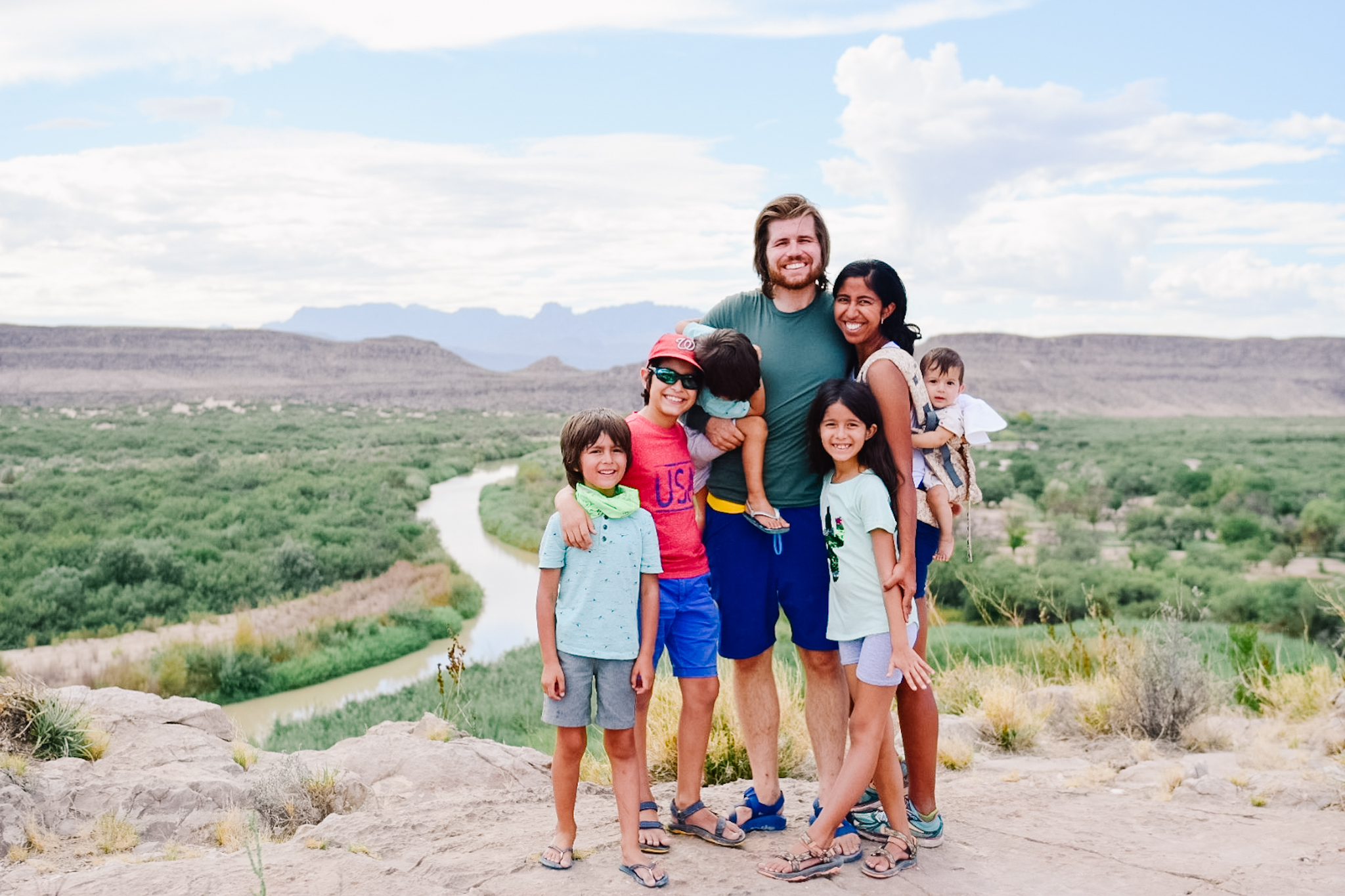
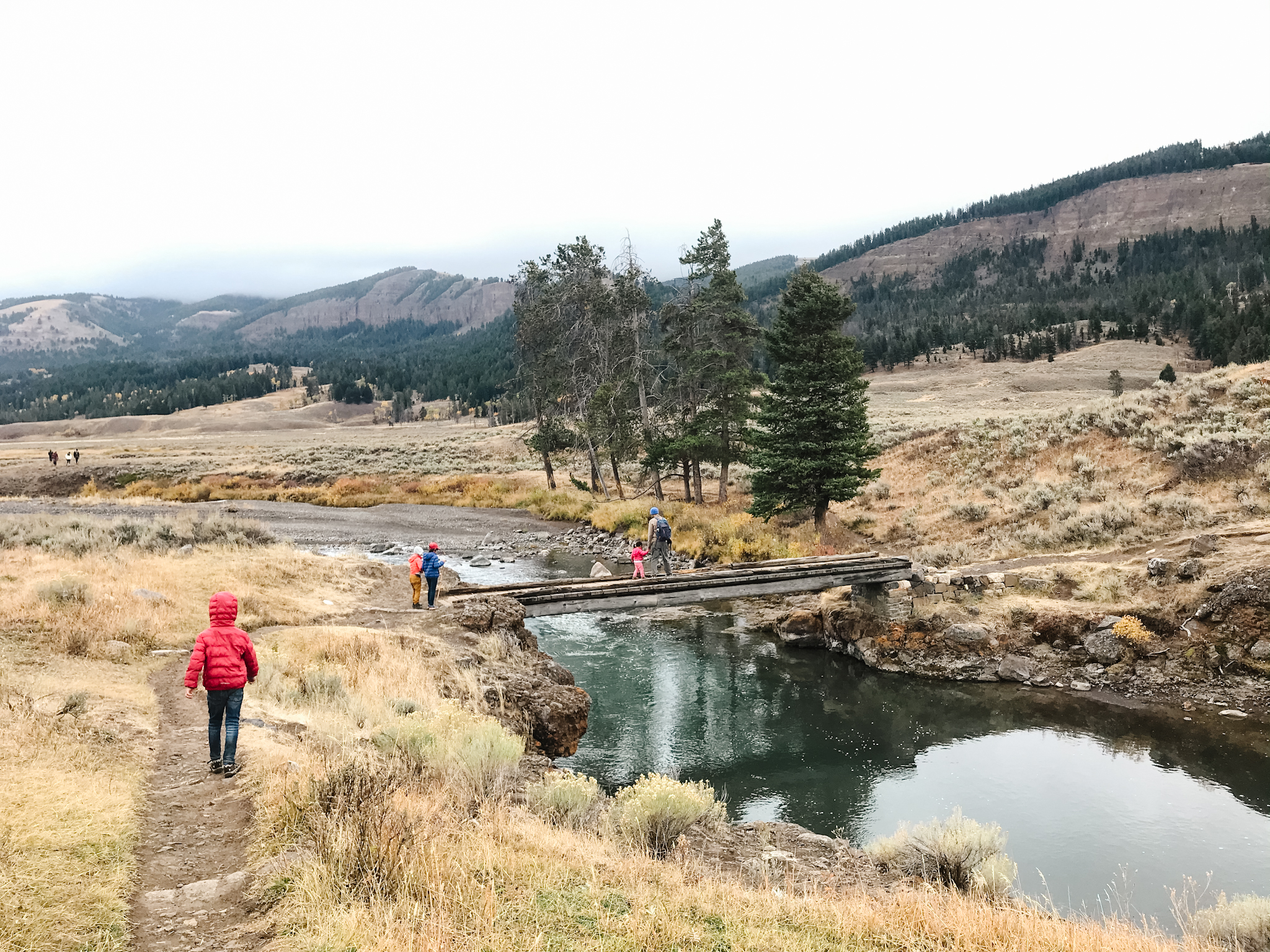
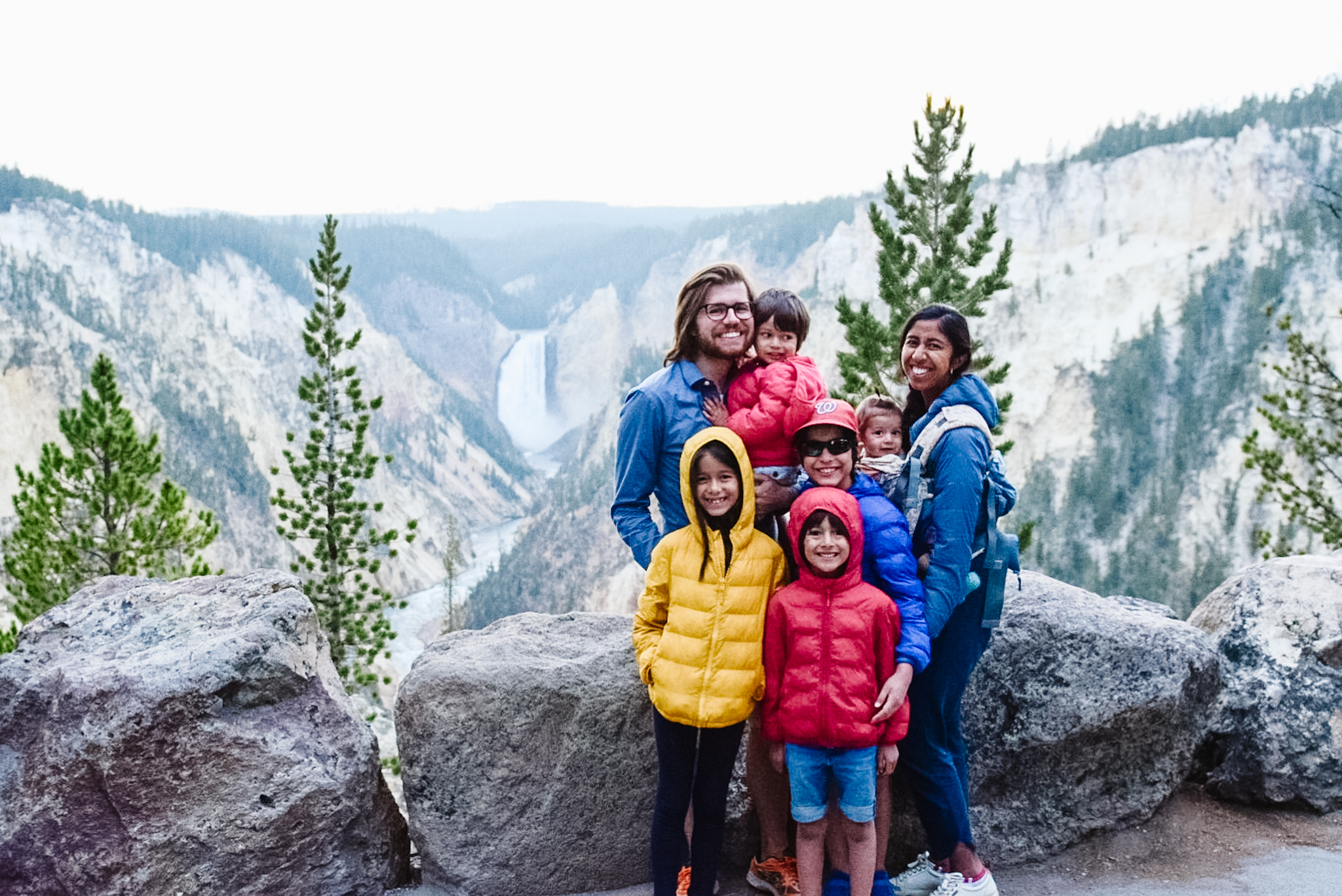
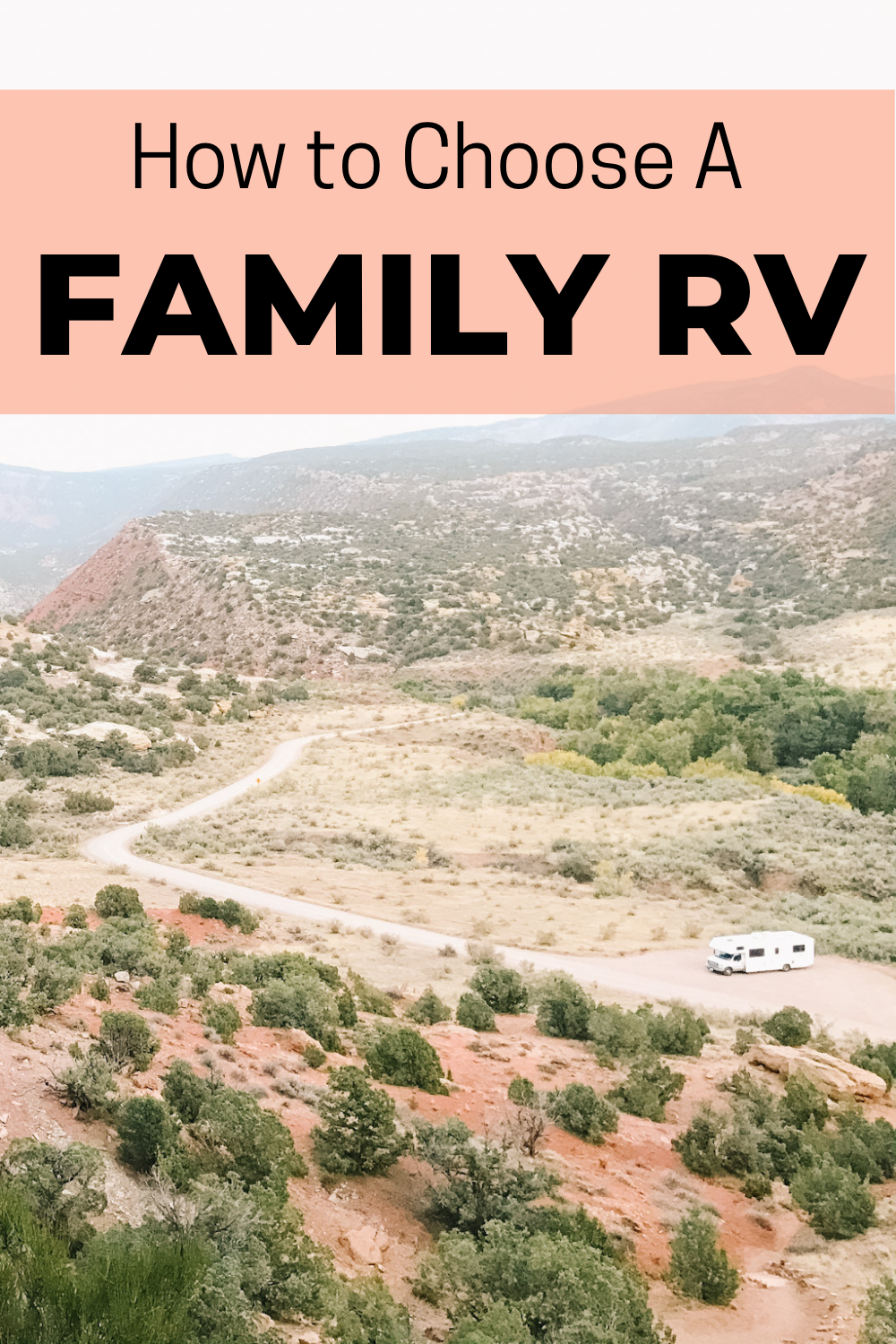



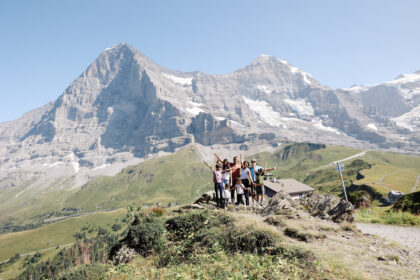





[…] How to Choose the Best Family RV […]
[…] which means we spent just about 3 months living in our RV itself. (Here’s how we chose which family RV with kids worked best for […]
It’s awesome that you mention that Class A motorhomes have a lot of living space in them. My wife and I want to take a long road trip this summer, so we are thinking about buying a Class A motorhome. I’m going to look for a good RV dealer in the area that can sell us a Class A motorhome.
That’s great! Have a wonderful trip!!
Your post was great and had a lot of information that is helping me consider options RVing with a family of five – my wife & I, two young adult kids, plus my wife’s mother. I couldn’t really decide between a Class C or a Class A. Before reading this post, I was equally torn between the two. After reading this post I’m leaning more toward the Class C. Thanks for your post.
[…] Here’s more info on the best style of RV for a family! […]
[…] How to Choose the Best Family RV […]